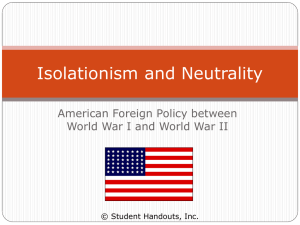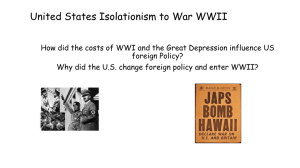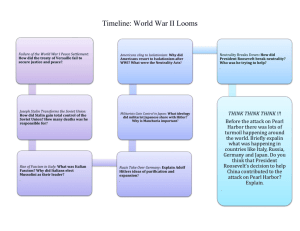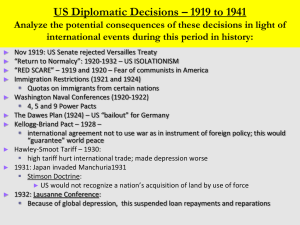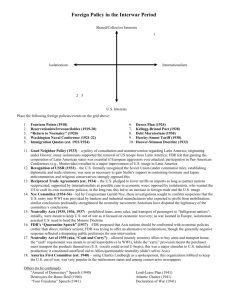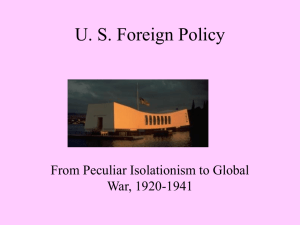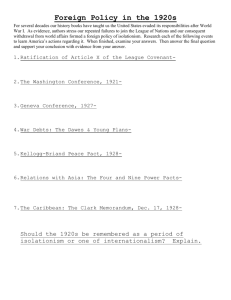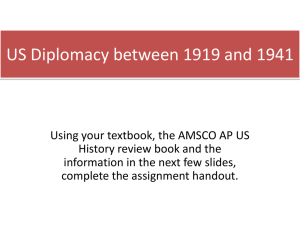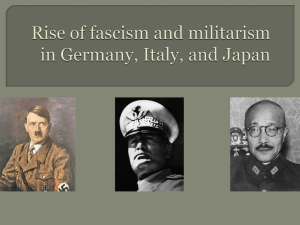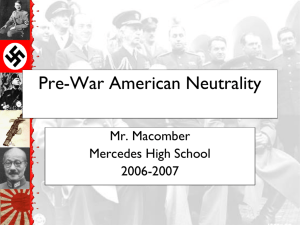From Isolationism to War - Binghamton City Schools
advertisement
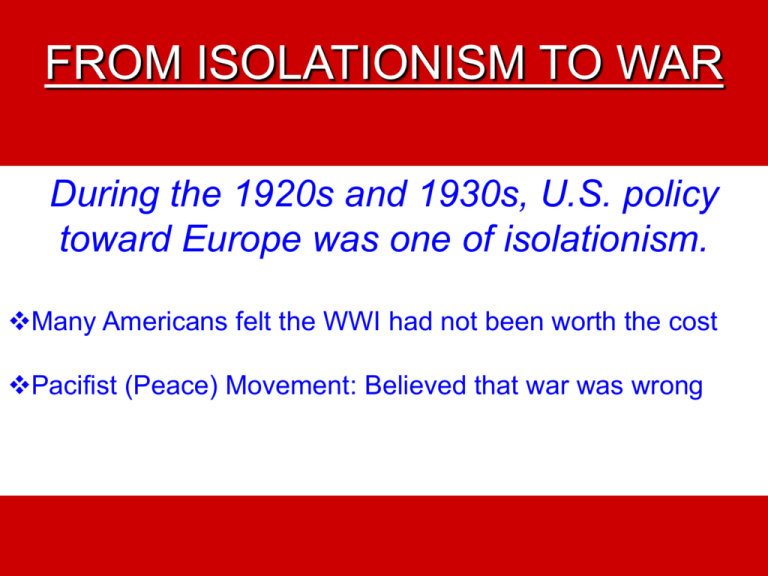
FROM ISOLATIONISM TO WAR During the 1920s and 1930s, U.S. policy toward Europe was one of isolationism. Many Americans felt the WWI had not been worth the cost Pacifist (Peace) Movement: Believed that war was wrong Isolationism 1929 1935 1936 1937 U.S. Foreign Policy in the 1920s & 1930s U.S. signs KelloggBriand Pact Outlawing War Neutrality Act of 1935 Prohibits Arms Sales to Belligerents (Nations at War) Neutrality Act of 1936 Prohibits Loans to Belligerents Neutrality Act of 1937 allowed trade of nonmilitary goods to belligerents on a “cash & carry” basis U.S. Becomes an “Arsenal for Democracy” 1939 1940 1941 U.S. Foreign Policy in the Late 30s and Early 40s Congress FDR Declares Repeals U.S. an Neutrality Arsenal for Acts Democracy Destroyers for Bases Deal Jan. 1941 LendLease Act August, 1941 Dec 7, 1941 U.S. Signs Atlantic Charter Congress Declares War After Pearl Harbor Undeclared Naval War w/ Germany

